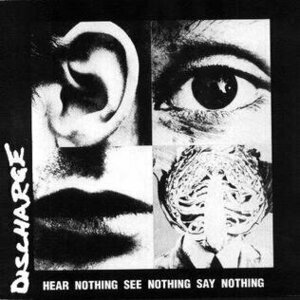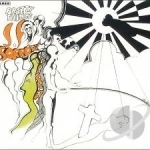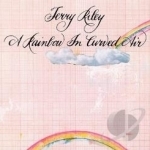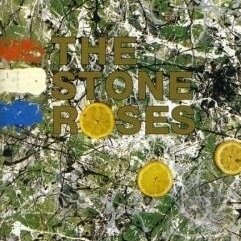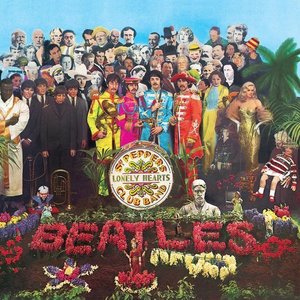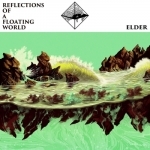Search
Mark Arm recommended Hear Nothing, Say Nothing, See Nothing by Discharge in Music (curated)
Sean Lennon recommended S.F. Sorrow by The Pretty Things in Music (curated)
Jonathan Donahue recommended Rainbow in Curved Air by Terry Riley in Music (curated)

Octagon - A Minimal Arcade Game with Maximum Challenge
Games
App
You are trapped inside the Octagon, a megaplex of hallways, platforms, and gaps—and the clock is...
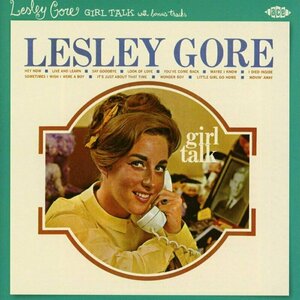
Girl Talk by Lesley Gore
Album
Ace follow up their recent release of Lesley Gore's Magic Colors The Lost Album with this expanded...
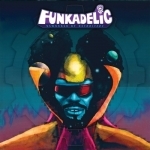
Reworked by Detroiters by Funkadelic
Album Watch
Funkadelic were the most influential group to emerge from Detroit in the 1970s. Their early albums...
funk
Zoosk (5 KP) rated Stone Roses by The Stone Roses in Music
Dec 5, 2024
A Timeless Masterpiece
Every so often, an album comes along that feels like it was born out of pure magic, and The Stone Roses is one of those rare gems. From the opening notes of “I Wanna Be Adored” to the euphoric closer “I Am the Resurrection,” this debut album is a flawless journey through shimmering guitars, hypnotic rhythms, and an aura of defiance and mysticism.
What sets this album apart is its ability to transcend genres. It’s a perfect blend of jangly indie rock, psychedelic flourishes, and danceable grooves, creating a sound that feels fresh even decades later. John Squire’s guitar work is nothing short of genius—each riff and solo feels meticulously crafted yet completely effortless. Ian Brown’s vocal delivery, while unconventional, perfectly captures the swagger and yearning that permeates every track.
Tracks like “She Bangs the Drums” and “Made of Stone” are anthems of pure joy, brimming with melodies that seem to be pulled straight from the heavens. “Waterfall” is a blissful, sun-drenched escape, while “I Am the Resurrection” is a sprawling epic that perfectly captures the band’s rebellious energy. Every song feels essential; there’s no filler here.
Listening to this album feels like stepping into another world, one where everything is drenched in sunlight and possibility. It’s no wonder it became the defining soundtrack of the late ‘80s Madchester scene, but its influence stretches far beyond that. Bands like Oasis and Arctic Monkeys owe much of their sound and success to this record.
For me, The Stone Roses isn’t just an album—it’s an experience. It’s bold, timeless, and utterly captivating. I can’t think of a single way it could be improved, and for that reason, it’s a perfect 10/10.
What sets this album apart is its ability to transcend genres. It’s a perfect blend of jangly indie rock, psychedelic flourishes, and danceable grooves, creating a sound that feels fresh even decades later. John Squire’s guitar work is nothing short of genius—each riff and solo feels meticulously crafted yet completely effortless. Ian Brown’s vocal delivery, while unconventional, perfectly captures the swagger and yearning that permeates every track.
Tracks like “She Bangs the Drums” and “Made of Stone” are anthems of pure joy, brimming with melodies that seem to be pulled straight from the heavens. “Waterfall” is a blissful, sun-drenched escape, while “I Am the Resurrection” is a sprawling epic that perfectly captures the band’s rebellious energy. Every song feels essential; there’s no filler here.
Listening to this album feels like stepping into another world, one where everything is drenched in sunlight and possibility. It’s no wonder it became the defining soundtrack of the late ‘80s Madchester scene, but its influence stretches far beyond that. Bands like Oasis and Arctic Monkeys owe much of their sound and success to this record.
For me, The Stone Roses isn’t just an album—it’s an experience. It’s bold, timeless, and utterly captivating. I can’t think of a single way it could be improved, and for that reason, it’s a perfect 10/10.
Daniel Boyd (1066 KP) rated Sgt. Pepper's Lonely Hearts Club Band by The Beatles in Music
Nov 2, 2017
One Of The Most Influential Albums Of All Time
The reason that this album is so influential and important to everything that came after it is simple, it was the first true example of what we think of as a concept album today. The album opens with an introduction to what you are about to witness, which is something that had never even been considered before in music. Sgt Pepper’s Lonely Heart’s Club Band was also very meta for its time considering that the first song informs you of the members that this band is made up from and gives you a reason as to why they are performing these songs to you. Equally, ending the album with the Sgt Pepper’s Lonely Heart’s Club Band reprise brings the whole thing full circle, and this formula became what was adopted by concept all albums going forward, The Who followed the same structure, as did Pink Floyd and Green Day. Musically, the record continued where Revolver, (the previous album,) left off, engraining the Beatles as pioneers in psychedelic music. Songs such as, ‘Lucy in the Sky With Diamonds,’ and ‘Within You, Without You,’ where more far out than any other psychedelic musical piece had been before. Then you have tracks such as ‘When I’m Sixty Four,’ and ‘Getting Better,’ which utilize classical instruments normally found in orchestral music. This totally rewrote the rules on what a pop song could do. Every song on Sgt. Pepper is a masterpiece and each earns that title both on an individual basis and as part of a whole and all for their own unique reasons. There is also the fact that the album contains what I consider to be the band’s greatest song, ‘A Day In The Life.’ It is the final track on the album, often considered an epilogue, as the album officially ends with the reprise of Sgt Pepper’s Lonely Heart’s Club Band and forty years later, it still sends tingles down the spine of anyone that has the honor to listen to it. Lennon’s parts bookend the track while the middle section belongs to McCartney. As is the case with the rest of the album, the song points out the juxtaposition of Lennon’s narcissistic realist view on the world versus McCartney’s brighter more optimistic outlook on life. Then the song ends with a beautifully chaotic climax of instruments all playing together, building from their respective lowest notes to their highest. It so clearly ends the album, there is no fade out, its everything coming together and playing simultaneously and then stopping all in unison, a very purposeful and definite way to end an album.
Even when the album is over the Beatles are still innovating by including a creepy loop within the groove of the album, implemented to give listeners a fright as they only expect to hear silence after the climax of ‘A Day In The Life.’ After a few moments of peace, a high pitched frequency is heard followed by a peculiar mix of abstract sounds all at once. Even after all this time, after the ridiculously high number of times that I’ve listened to the record and although I know to expect the sound before it happens, it’s still chilling to this day. This was the first time that a band intentionally included hidden sounds on an album, making listeners sit through a few seconds of silence to hear it. People claim that this album is overrated, but there is a reason that it is held in such high regard and whether you think this album deserves its legendary status or not, it is impossible to debate the fact that it is probably the most important album ever recorded. Everything from the album artwork to the music and the lyrics is still extremely relevant and important, even in this current digital age of music.
Even when the album is over the Beatles are still innovating by including a creepy loop within the groove of the album, implemented to give listeners a fright as they only expect to hear silence after the climax of ‘A Day In The Life.’ After a few moments of peace, a high pitched frequency is heard followed by a peculiar mix of abstract sounds all at once. Even after all this time, after the ridiculously high number of times that I’ve listened to the record and although I know to expect the sound before it happens, it’s still chilling to this day. This was the first time that a band intentionally included hidden sounds on an album, making listeners sit through a few seconds of silence to hear it. People claim that this album is overrated, but there is a reason that it is held in such high regard and whether you think this album deserves its legendary status or not, it is impossible to debate the fact that it is probably the most important album ever recorded. Everything from the album artwork to the music and the lyrics is still extremely relevant and important, even in this current digital age of music.
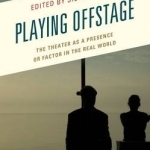
Playing Offstage: The Theater as a Presence or Factor in the Real World
Book
Fourteen scholars who work on campus or in the theater address this issue of what it means to play...
